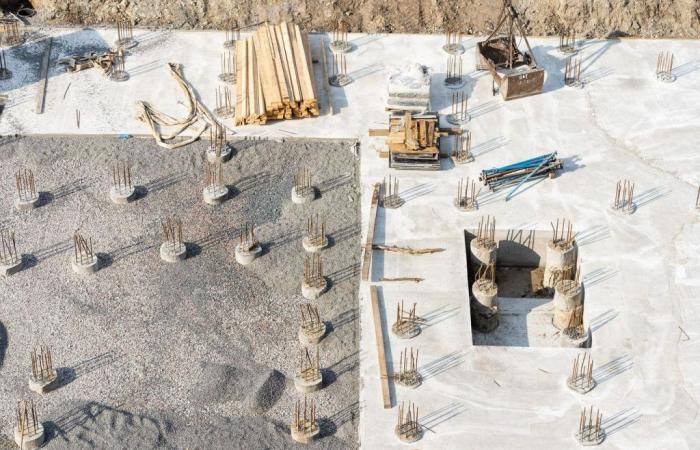“I cried when I learned the results of the European elections”, testifies Shakiba, 39, who had to flee the Taliban regime in Afghanistan. “I saw in Türkiye how the takeover of the far right could affect a country. And I’m afraid for our rights”, continues Gonca, 28, who grew up in Istanbul and holds a master’s degree in philosophy on gender, completed in Paris.
With the eventual arrival of the National Rally in power, “the French are not aware that their lives can very quickly change”adds Hamze, 40, arrested in Iran and threatened with long years of imprisonment for having advised a reformist pro-democrat politician in the 2009 presidential election.
These two women and this man have in common the fact that they obtained political asylum in France under the 1951 Geneva Convention on the status of refugees. They also share the fear of professional downgrading which would worsen with an extreme right in power in France.
Difficulty of inclusion through work
On the occasion of World Refugee Day, June 20, the NGO Singa, specializing in the inclusion of “new arrivals”, wanted to alert this year about the “major challenge for the European economy” what this downgrading represents, but postponed this campaign to broadcast refugee testimonies linked to the political situation in the country. The difficulties of inclusion of Shakiba, Gonca or Hamze, however, clearly illustrate the difficulty of understanding the question of immigration in its economic dimension.
After working in Ariane Mnouchkine’s Théâtre du Soleil troupe, Shakiba trained in textile design, was a performer, and created a fair trade business. At the head of the association Le Cercle persan, she “survives” today and dreams of creating an Institute of the Persian World. Gonca, after a year of ” despair “ to look for a job, is ” Research Analyst “ at Singa, but don’t give up being a researcher.
“Waste of talent”
The case of Hamze is the most emblematic. The young Iranian, an engineer and graduate in political science, learned French and worked odd jobs before unsuccessfully launching a consulting company to trade with Iran. Supported by Singa, he resumed studies and obtained an MBA and a master’s degree in “AI and Big data”. He has been on a permanent contract for a year at Welcome Account, an online solution for accessing banking services for immigrants in Europe. It took him almost fifteen years to find a position matching his initial qualifications.
“Downgrading is a huge waste of talentestimates Benoît Hamon, the former minister and socialist presidential candidate, at the head of Singa. Refugees, although more qualified than the French, experience real difficulty in the job market due to lack of an inclusive model. We don’t think about how to put this potential to the service of the community. Precariousness predominates. »
Overqualified and precarious
Overqualified, refugees occupy 46% of worker positions (22% in this case in their country), 42% of employees (compared to 18%), 2% of managers and higher intellectual professions (compared to 10%). %). One year after obtaining their residence permit, only 42% are employed, and most are on fixed-term contracts. Three quarters live below the poverty line, underlines a study by the French Institute of International Relations (Ifri).
Refugee economist at Sciences Po, Benjamin Michallet pleads for the opening of administrative data to researchers. According to him, “a better understanding of the links between employment and refugees would help to dispassionate the debate and better construct or evaluate public policies”.
“It is important to differentiate ordinary migration, legal or illegal, from constrained and forced migration which may give rise to international protection, underlines the researcher. The 130,000 political refugees in France have not necessarily chosen their destination. They have not planned their arrival and are less prepared to integrate. »
Recognition of their original diploma is also more complicated, particularly for regulated professions. These “could initiate a dialogue to promote access, when there are labor shortages”propose Benjamin Michallet.
“More and more companies are showing an interest in recruiting refugeesremarks Benoît Hamon. They understand that the richness of having multicultural teams generates performance and creativity. » Large groups like L’Oréal, Danone and Generali have signed inclusion charters.
—
An economic issue in Europe
Nearly two-thirds (63%) of European SMEs say they cannot find the talent they need.
Talent shortage costs businesses more than 1,000 billion dollars per year in 30 developed economies, or 3 billion dollars (2.8 billion euros) per day, according to the Boston Consulting Group.
Between 2012 and 2022, the proportion of immigrant workers independent workers in the EU increased from 7% to 12%, driven by Sweden, the Netherlands and Germany. The EU estimates the number of self-employed workers born outside Europe at 2.2 million.
Source: “Newcomer entrepreneurs: hidden heroes of European prosperity”, a study carried out by Starting New, a European network for newcomer entrepreneurship.






